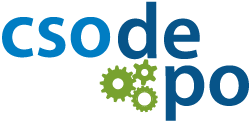Tutored Distance Learning Course on the Rights of people with disabilities under the Help platform
The Armenian Association for the Disabled ''Pyunic'' (Pyunic NGO, Yerevan, Armenia) and its international partner, Advocacy Centre on Council of Europe Standards (ACCESS, Strasbourg, France), are launching a call for participants for a tutored distance learning course on the rights of persons with disabilities, developed in close collaboration with the Council of Europe's (CoE) European Programme for Human Rights Education for Legal Professionals (HELP). The course duration is 10 weeks and it is scheduled to take place between April 3 – June 11, 2018.
The distance course is designed specifically for the learning needs of Armenia-based and Armenian-speaking members of non-governmental organisations (NGOs), human rights educators and activists working in the field of rights of persons with disabilities (both mental and physical) and cross-cutting issues.
The online training is organised within the framework of the project ''Promoting the social rights of persons with disabilities by building the capacity of Armenian civil society organisations to engage with the CoE monitoring mechanisms", funded by the European Union.
Below you may read more information about the course and the implementing organisations.
1. The e-learning course on the rights of persons with disabilities and its Armenian adaptation
The model English e-learning course on the rights of persons with disabilities has been developed by ACCESS in close cooperation with the HELP Programme Secretariat. In 2017, two ACCESS international experts on the rights of persons with disabilities prepared the training material in English. The model course is open to any user who creates an account on the HELP platform, making it free and available to anyone with a computer and internet.
The course will have two adaptations in the Armenian language: one for legal professionals, judges and government officials working on the rights of persons with disabilities and cross-cutting issues in Armenia, and another one for members of Armenian civil society organisations. The latter is designed to meet the specific needs of the direct beneficiaries to this project – members of NGOs working on the rights of persons with disabilities. They will benefit both from a face-to-face training and distance learning, led and guided by a National Tutor. The distance course is composed of the following modules which correspond to the priorities established in the CoE Disability Strategy 2017-2023:
- Introductory module;
- Non-discrimination and intersectionality;
- Legal capacity and independent living;
- Accessibility and independent living;
- Social rights of persons with disabilities.
The participants will receive all necessary information and technical support throughout the implementation of the course. They will be invited to a kick-off meeting with the National Tutor (the date and the venue of the meeting will be announced shortly) to get practical details on the course and its methodology. Pyunic and ACCESS will fully cover all the travel and accommodation-related expenses of the participants.
2.What are the benefits of taking this distance course?
The proposed e-learning course stands out in two important ways: it will be the first HELP course targeting civil society, and it will be the first fully-fledged course on the rights of persons with disabilities in the HELP curriculum. Moreover, the course will be available in accessible formats in order to make sure that everyone can benefit from it. Its central aim will be to increase the knowledge of civil society and other relevant stakeholders in Armenia on the applicable international and CoE standards. This will be achieved by a complementary set of trainings, combining a 10-week distance learning course based on the innovative methodology of the HELP Programme via the online HELP platform, and supplemented by a face-to-face training session with participants at the beginning of the course.
At the end of the course, the participants will be able to:
- Identify and compare international standards on rights of persons with disabilities under the UN Convention on the Rights of Persons with Disabilities (UNCRPD) and the CoE instruments (European Convention on Human Rights – ECHR, the revised European Social Charter- ESC(r) and soft law documents),
- Understand and distinguish the role of European actors in protecting and promoting the rights of persons with disabilities, with a focus on the role of the European Court on Human Rights (ECtHR), and the European Committee of Social Rights (ECSR),
- Apply in practice the relevant provisions of the ECHR, ESC(r) and other European standards when planning their own lobbying and advocacy strategies for a better protection of the rights of persons with disabilities,
- Become certified trainees by getting attendance certificates from the CoE HELP Programme. The most successful trainees will be inserted in a list of certified HELP trainers so that in the future both Council of Europe offices and national training institutions could involve them into national or international activities on the ECHR.
3. The profile of the participants
The tutored distance course is organised for Armenia-based and Armenian-speaking representatives of disabled persons' organisations (DPOs) and NGOs, as well as human rights educators and activists working in the field of the rights of persons with disabilities (both mental and physical) and cross-cutting issues. The participants must:
More information on the HELP Programme and its courses can be found at http://www.coe.int/en/web/help/help-training-platform.
5. Application
Interested candidates must send their curriculum vitae (CV) by e-mail to [email protected], by 9 March, midday (Yerevan Time). All the documents should be sent in a Word or PDF format. Applications can be written both in Armenian and in English.
For more information about the training course, contact the project manager Ruzanna Sargsyan at [email protected].
